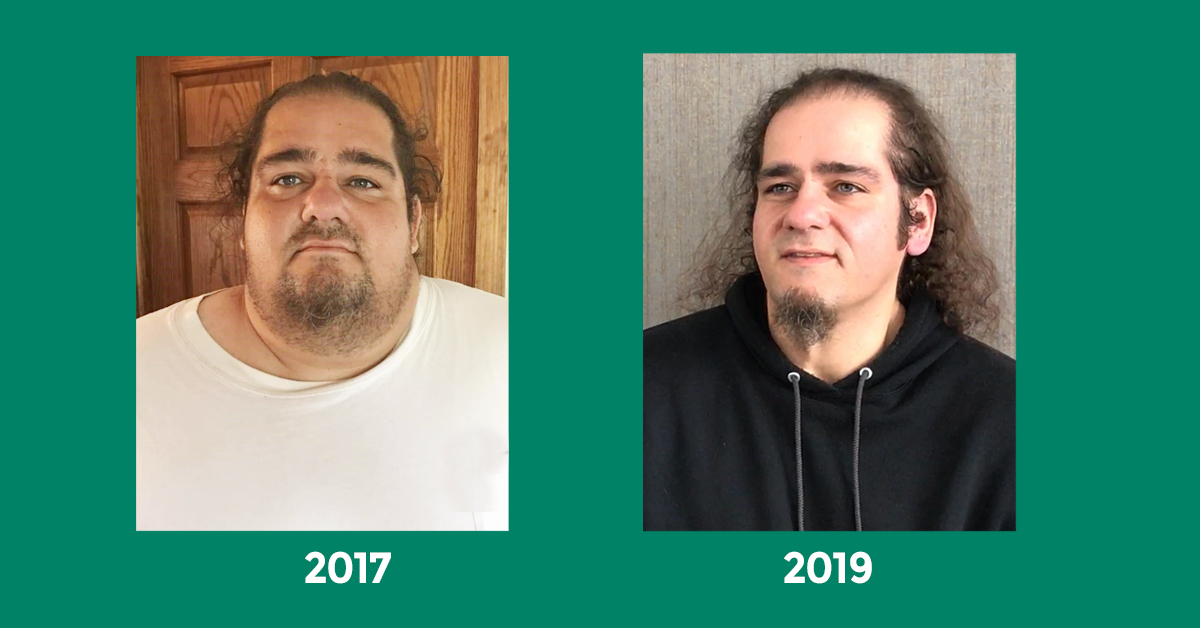Two-and-a-half years ago, Kevin Bottesi was locked in a life or death battle with a formidable enemy – himself.
He was 740 pounds, his blood pressure was dangerously high and he had sleep apnea. He knew he needed to lose weight, but never took weight loss seriously. That’s because his aforementioned enemy deviously helped dismiss his health conditions and weight.
“I call it the fat brain. Your fat brain will tell you that you don’t really have a problem – you’re fine. I could still walk around a little bit. That’s good enough for me,” he says.
When Kevin’s health suddenly took a life-threatening turn, his “fat brain” offered no comfort.
“I had respiratory failure. Basically, my kids were saying goodbye to me because they didn’t think I was going to pull through,” he says. “They put me in an induced coma. That was kind of the turning point for me. I didn’t want my kids to say goodbye to me.”
Doctors saved his life, but before Kevin left the hospital, bariatric surgeons met with him to discuss weight loss surgery. Kevin knew it was time to ignore his fat brain’s advice and accept his doctors’ recommendations.
“I said now is the time. It’s now or never, or I’m going to die. That was the reality of this,” Kevin says.
Kevin met with Dr. Daniel McKenna, a general and bariatric surgeon with Aurora BayCare Medical Center in Green Bay, Wisconsin. They discussed weight loss surgery.
However, before any weight-loss procedure would take place, Kevin would have to shed some pounds.
“They want to see that you’re going to really put forth the effort. So, they want you to lose some weight prior to the surgery. They want to make sure you’re psychologically prepared for the changes and everything like that,” he says.
Kevin accepted the challenge. He lost 250 pounds by following a low-carb diet plan. He also swam a few times a week for physical fitness.
McKenna scheduled Kevin for a Roux-en-Y gastric bypass surgery. The procedure, performed in September 2017, reduced the size of Kevin’s stomach to restrict the amount of food it can hold. Roux-en-Y patients feel full faster.
Kevin’s recovery went well.
“After surgery, I really didn’t have much pain at all,” he says. “It’s a little bit of an adjustment learning how much you can eat. It’s really not too difficult as long as you follow the instructions.”
He lost another 250 pounds after surgery and today weighs around 240 pounds.

The weight-loss journey with McKenna and the doctor’s bariatric surgery staff was “amazing,” Kevin says.
“You’re scared you might not be able to pull out of it,” he says. “They did an amazing job and answered any questions I needed, too.”
Now he’s enjoying the freedom his successful weight loss affords him.
“I can just make plans with the kids and I don’t have to worry about whether I’m going to be able to walk,” he says.
For people on the fence about weight-loss surgery, Kevin offers this: It’s hard, but it’s worth it.
“I listened to my fat brain for so long until I got to that point where I almost died and everyone was saying goodbye to me. Don’t get to that point,” he says. “Grab it now and go with it. It’s so worth it in the long run.”